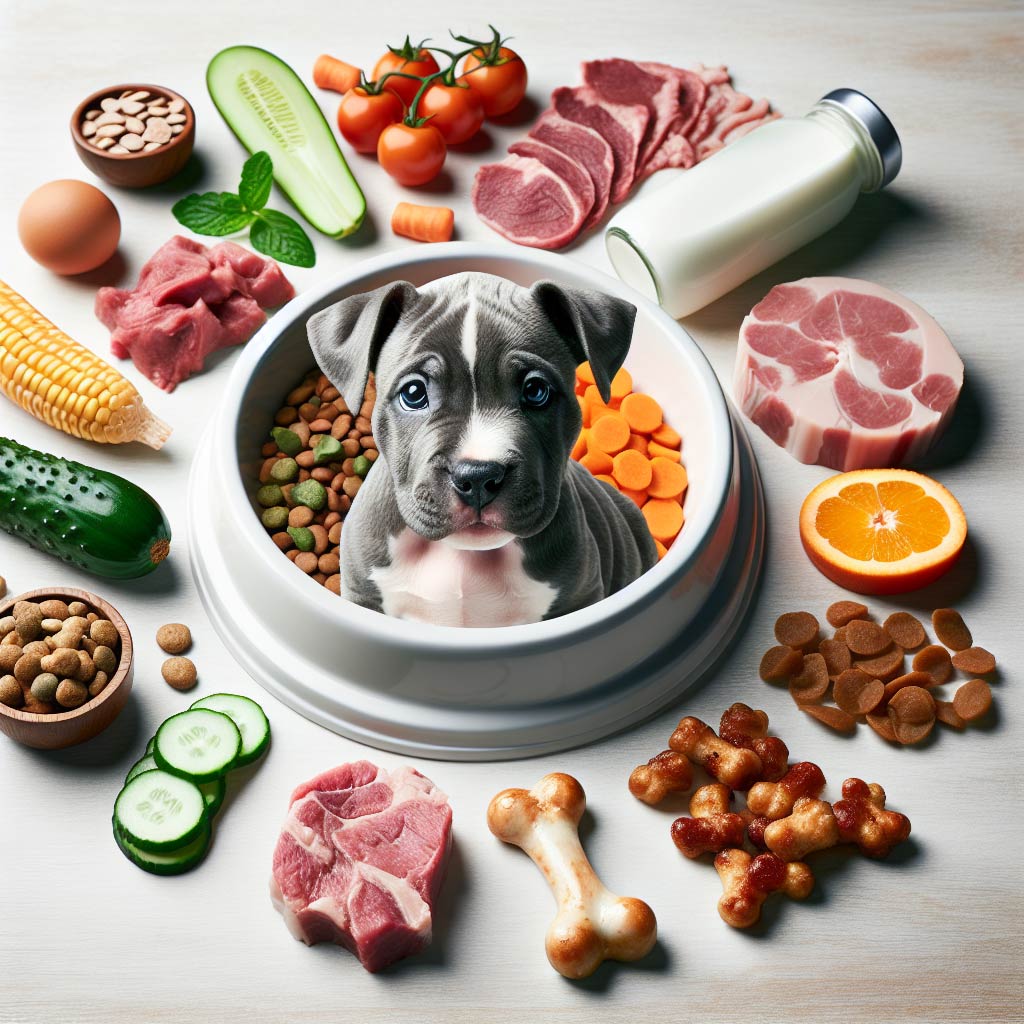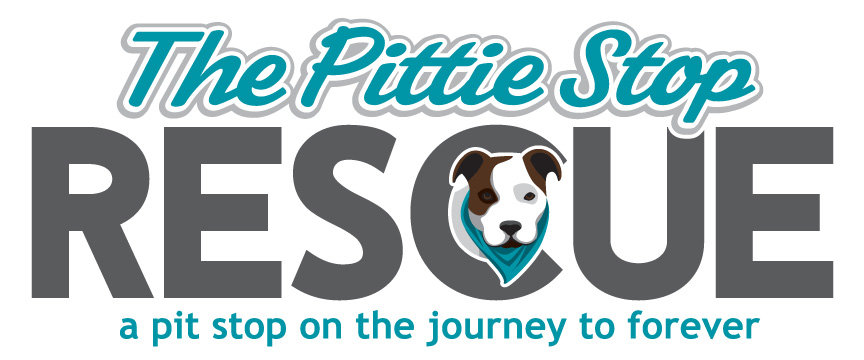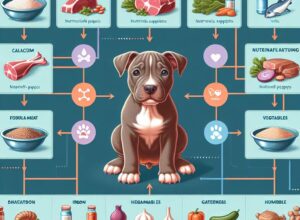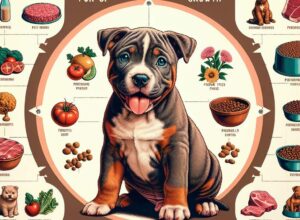
Building Strong Foundations: Bone Essentials for Pitbull Puppies
When it comes to raising a healthy pitbull puppy, what they eat is the cornerstone of their future well-being. Just like a house needs a strong foundation to withstand the tests of time, your pitbull puppy requires the right nutritional building blocks for robust growth and vitality. And one of the critical components of their diet? Bones. They’re not just a treat or a tool to keep your pup occupied. Bones are packed with essential nutrients that are pivotal for your pitbull puppy’s development.
Key Takeaways
- Bones supply necessary minerals like calcium and phosphorus, crucial for proper skeletal development.
- Chewing on bones can support dental health by reducing plaque and tartar buildup.
- Raw bones should make up about 10% of your pitbull puppy’s diet to avoid nutritional imbalances.
- Bones also provide mental stimulation and can help alleviate the natural urge to chew.
- It’s essential to choose the right type and size of bone to prevent choking or other hazards.
Nutritional Profile: The Building Blocks of Bone
Imagine the body as a complex structure, and bones are the steel beams that support it. They’re not just for chewing; they’re a source of critical nutrients that your pitbull puppy needs to thrive. Bones are rich in calcium and phosphorus, two minerals that work in tandem to build strong bones and teeth. But that’s not all; they also contain marrow, offering a rich source of energy and essential fatty acids, and cartilage, which is a natural source of chondroitin and glucosamine, known for supporting joint health.
Pro Tip: Always supervise your puppy when they’re enjoying a bone to ensure they’re chewing safely and not biting off more than they can handle.
Quantifying the Quotient: How Much Bone is Beneficial?
Now, you might be wondering, “How much bone should I be feeding my pitbull puppy?” It’s a fine balance. Bones should constitute about 10% of your puppy’s total diet. Any more, and you risk constipation due to excess calcium; any less, and your pup might miss out on those essential nutrients. To keep things simple, include bone weight as part of the daily food allowance and adjust as your puppy grows.
Remember: Overfeeding bones can lead to an imbalance in the diet, potentially causing nutrient deficiencies or excesses.
Navigating Nutrients: What Bones Bring to the Bowl
Let’s dive into the nutritional treasure trove that bones offer. Beyond calcium and phosphorus, bones are a source of protein and essential fatty acids. They also provide a variety of vitamins and minerals, including vitamin A in the marrow and micronutrients like zinc, selenium, and manganese. These nutrients are not just extras; they’re fundamental to your pitbull puppy’s health, contributing to everything from a strong immune system to efficient metabolism.
Calcium: Crafting a Strong Canine Skeleton
Calcium is the celebrity of bone health, and for good reason. It’s the most abundant mineral in the body and is vital for more than just bones and teeth; it’s essential for nerve function, muscle contraction, and blood clotting. For your growing pitbull puppy, a calcium-rich diet is non-negotiable. But here’s the catch – calcium needs to be balanced with phosphorus to be effective. Bones naturally offer this balance, making them an ideal source of these minerals.
Phosphorus: Partner to Calcium in Puppy Growth
Phosphorus, the sidekick to calcium, plays a pivotal role in your pitbull puppy’s health. It’s involved in forming DNA and RNA and is a critical component of ATP, the energy currency of the cell. This means phosphorus is not just about building strong bones; it’s about fueling the growth and energy that a playful pitbull puppy exudes. And when you offer bones as part of their diet, you’re ensuring they get this vital mineral in the right proportion to calcium, promoting balanced growth and development.
Collagen: The Framework for Fido’s Flexibility
Collagen is the unsung hero of your puppy’s body, providing the scaffolding for tissues and playing a crucial role in maintaining the integrity of cartilage, which cushions joints. As your pitbull puppy bounds and leaps, collagen helps absorb the shock and keeps their movements fluid. Bones, especially those with connective tissues attached, are a natural source of collagen, which can help support your puppy’s joint health and overall mobility.
Other Trace Elements: Vital Vitamins and Minerals
While calcium and phosphorus get the spotlight, bones are also a treasure trove of other trace elements. They’re a source of magnesium, which works closely with calcium in bone formation and muscle function. Bones also contain potassium, which is essential for nerve function and muscle control. And let’s not forget about the marrow, rich in iron, which is crucial for healthy blood cells. These trace elements contribute to a well-rounded diet, supporting your puppy’s overall health and vitality.
Chomping on Bone: Why Your Pitbull Puppy Needs It
Bones are more than just a dietary supplement; they’re a multifaceted tool in your pitbull puppy’s development. They provide essential nutrients, help maintain dental health, and even cater to your pup’s instinctual need to chew. But the benefits don’t stop there. Bones can also be a source of mental stimulation and a way to keep your puppy engaged and satisfied.
Aiding Digestion: The Gastrointestinal Benefits
Chewing on bones isn’t just satisfying; it’s beneficial for your puppy’s digestive health. The act of gnawing stimulates saliva enzymes, which can help break down food and reduce plaque. Moreover, the mechanical action of chewing can help scrape away buildup in the intestines, promoting healthy bowel movements. It’s a natural way to keep your puppy’s gastrointestinal tract running smoothly.
Dental Health: Gnawing for a Gleaming Grin
Let’s talk teeth. Your pitbull puppy’s chompers are tools of the trade, and keeping them healthy is a must. Chewing on the right kind of bones can act like a natural toothbrush, scraping away tartar and massaging the gums. This can help prevent dental issues like gingivitis and periodontitis, ensuring your pup’s smile stays bright and healthy. Plus, who can resist the charm of a pitbull puppy with a gleaming grin?
Behavioral Benefits: Satisfying the Chew Craving
Ever noticed how puppies seem to chew on everything in sight? It’s not just a quirky habit—it’s an instinctual need. Chewing is a natural behavior for dogs, especially for teething puppies. It helps them explore their world, relieve stress, and even ease the discomfort of new teeth coming in. By incorporating bones into their diet, you’re providing a safe and appropriate outlet for this chewing urge. This can prevent destructive behaviors, saving your shoes and furniture from becoming unintended chew toys. Plus, it keeps your pitbull puppy mentally stimulated and content.
Preventing Potential Pitfalls: The Risks of Ignoring Bone in a Diet
It’s tempting to think that a bowl of kibble is enough for your growing pitbull puppy, but omitting bones from their diet can lead to a host of issues. Bones are a package of nutrients that are hard to replicate with processed foods. Without them, your puppy may miss out on the full spectrum of vitamins and minerals they need, which can lead to deficiencies and health problems down the line.
Deficiency Dilemmas: When Nutrients are Lacking
Without the right balance of calcium and phosphorus provided by bones, your pitbull puppy could face a deficiency that impacts bone density and strength. Imagine a building constructed with subpar materials—it’s more prone to cracks and damage. The same goes for your puppy’s skeleton. Additionally, a lack of collagen and other nutrients found in bones can affect joint health, potentially leading to mobility issues as they grow.
Growth Concerns: Compromised Development without Bone
Skipping bones in your pitbull puppy’s diet doesn’t just risk immediate health concerns; it can have long-term effects on their growth and development. Proper bone development is critical during the puppy phase, setting the stage for their adult size and strength. A lack of essential nutrients can lead to stunted growth or developmental abnormalities, which can be challenging to correct later in life. By ensuring bones are part of their diet, you’re giving your puppy the best chance at growing up strong and healthy.
Safe Supplementation: Introducing Bone in Your Puppy’s Diet
Knowing the importance of bones is one thing, but introducing them safely into your pitbull puppy’s diet is another. It’s not as simple as tossing them a bone and hoping for the best. You need to be mindful of the type of bone, the size, and how it fits into their overall diet. The goal is to supplement their nutritional needs without causing harm or creating an imbalance.
Choosing the Right Bones: Size and Type Matter
When it comes to bones, size and type do matter. You want to avoid bones that are too small, as they can be a choking hazard, or too hard, as they can break teeth. Opt for raw bones that are appropriately sized for your puppy’s mouth and still soft enough to chew without splintering. Good options include raw chicken wings, necks, or lamb ribs. Always supervise your puppy during bone-chewing sessions to ensure they’re safe and enjoying the benefits without any risks.
The Dos and Don’ts of Bone Feeding
Feeding bones to your pitbull puppy can be incredibly beneficial, but it’s essential to do it right. Here are some straightforward guidelines to ensure your puppy gets the most out of bone feeding:
- Do choose raw, soft bones that are large enough to prevent choking but small enough for your puppy to handle.
- Do supervise your puppy while they’re chewing to prevent any accidents or ingestion of large bone pieces.
- Do introduce bones gradually to your puppy’s diet to avoid digestive upset.
- Don’t feed cooked bones, as they can splinter and cause internal damage or obstructions.
- Don’t give your puppy bones too frequently; moderation is key to maintaining a balanced diet.
- Don’t ignore your puppy’s individual needs and chewing habits; adjust bone size and frequency accordingly.
Remember: Always consult with your vet before making significant changes to your puppy’s diet, including the introduction of bones.
Alternative Sources: When Raw Bones Aren’t an Option
Sometimes, raw bones may not be suitable or available for your pitbull puppy. In such cases, it’s crucial to find alternative sources of the nutrients that bones provide. Consider adding bone meal powder or a balanced calcium supplement to their meals. You can also look for specially formulated puppy foods that include the necessary vitamins and minerals for bone health. Chewing toys designed to promote dental health can also be a safe alternative to satisfy your puppy’s chewing needs.
Beyond Bone: Complete Nutrition for a Wholesome Diet
While bones are a critical part of your pitbull puppy’s diet, they’re just one piece of the nutritional puzzle. A well-rounded diet that supports your puppy’s growth and energy levels includes proteins, fats, carbohydrates, and plenty of water. Let’s break down these essential dietary components:
Proteins: The Primary Performance Providers
Proteins are the building blocks of life, especially for a growing pitbull puppy. They’re essential for muscle development, tissue repair, and a robust immune system. High-quality protein sources like lean meats, fish, and eggs should be a staple in your puppy’s diet. The right amount of protein will help your pitbull puppy grow strong and maintain a healthy weight.
Fats and Carbs: Fueling Your Pitbull Puppy’s Play
Fats are a dense source of energy and vital for your puppy’s brain development, while carbohydrates provide a quick energy source for all that puppy playtime. Healthy fats like those found in fish oil can support coat health and cognitive function. Meanwhile, complex carbs from vegetables and whole grains will keep your puppy’s energy levels steady throughout the day. Balance is crucial, so be sure to provide a mix of fats and carbs that suits your puppy’s activity level.
Hydration: Ensuring Enough Water with Their Diet
Water might not be the first thing you think of when it comes to nutrition, but it’s just as important as any food you provide. Hydration is crucial for your pitbull puppy’s overall health, aiding in digestion, nutrient absorption, and temperature regulation. Always make sure your puppy has access to fresh, clean water, and monitor their intake to ensure they’re staying properly hydrated throughout the day.
FAQs
Is it safe to give my Pitbull puppy cooked bones?
No, it’s not safe. Cooked bones can splinter easily, and these sharp fragments can cause serious harm to your puppy’s mouth, throat, or intestines. Stick to raw bones, which are softer and safer for your pitbull puppy to chew on. Always supervise your puppy with any bone to ensure they chew it properly and don’t bite off large pieces.
How can I tell if my puppy is getting enough calcium?
Monitoring your pitbull puppy for signs of good health is key. Puppies getting enough calcium usually have strong teeth and bones, which you’ll notice as they grow without any fractures or dental issues. If you’re unsure, consult your vet, who can provide guidance and possibly suggest a blood test to check calcium levels.
Can I give my puppy bone supplements instead of real bones?
Yes, bone supplements can be a good alternative if raw bones aren’t suitable for your puppy. However, it’s essential to choose high-quality supplements that are balanced and designed specifically for puppies. Always talk to your vet before adding supplements to your puppy’s diet to ensure they’re necessary and appropriate.
What are the signs of a nutritional deficiency in puppies?
Nutritional deficiencies can manifest in various ways. Look out for signs like poor growth, weight loss, a dull coat, lethargy, and weakness. In more severe cases, you might notice problems with their bones or teeth. If you suspect a deficiency, it’s crucial to consult your vet for a proper diagnosis and treatment plan.
How often should I include bones in my Pitbull puppy’s diet?
Bones should be included in your pitbull puppy’s diet about 2-3 times a week, making up roughly 10% of their total dietary intake. This frequency ensures they get the benefits of bones without overdoing it. Always adjust the amount based on your puppy’s size, age, and specific nutritional needs.
Keep in mind that every puppy is unique, and what works for one may not work for another. Always be observant, adjust as needed, and don’t hesitate to seek advice from your vet. With the right knowledge and resources, you’re well on your way to nurturing a thriving pitbull companion for years to come.



